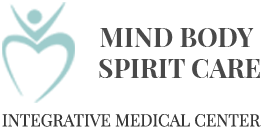WATER:
Our body is made primarily of water. We must therefore drink and hydrate our body mostly with pure water, and not juice, soda, tea, or coffee. It is generally recommended to drink 1/2 our body weight in ounces of water throughout the day.
If we want to ensure a self sustaining clean environment, we may want to avoid the use of plastic bottles that pose a synthetic stress to our planet and to our body. When we drink water from plastic bottles, the water may have been tainted with toxic chemicals from the bottle that could have leeched into the water due to heat exposure from the sun or the environment. In addition, most bottled water companies simply serve purified tap water, a task we can all do at home at a much lower cumulative cost without the environmental threat posed by the shift of control of water supplies from governments to wealth building corporations.
FOOD:
Since food is a major source of energy for our body, it is crucial for us to be conscious of what we feed our body. In choosing healthy foods, we can use common sense principles to guide us. We want to chose balanced portions of a spectrum of colorful unprocessed whole foods that emphasize in-season, locally grown raw vegetables and fruits. If we like to cook vegetables, we may want to steam them lightly, as to avoid the breakdown of the biochemical molecules that occurs doing excessive heating or microwaving of food. If we chose to eat meat or fish, we may want to indulge ourselves in free range, wild, organically grown or fed animals in order to avoid the potential contamination by artificial chemicals and hormones.
We may want to eat small frequent meals without ever filling ourselves in view of studies that suggest that caloric restricted diet has been associated with long healthy life. Eliminating sugars, dairy, and gluten (a major protein component of wheat) from our diet will often bring about improvements in variety of symptoms including excess mucus production by our body, or immune hypersensitivity response of our gut, skin, or joints.
As our body uses energy in the process of digesting and assimilating food, it is possible to reduce the demands on the body at times of stress. We can chose to eat soft, or liquid diets, eat smaller amounts of food, or even avoid altogether certain foods that may be stressful to our body. We may want to pay attention to our digestive process by ensuring a slow and adequate chewing process. There are many resources that we can refer to for juicing and blending of vegetables, fruits, herbs and spices . We may even want to become self sufficient, especially in harsh economic times, and grow a small vegetable and herb garden, with surrounding fruit trees of our choice.
It is of utmost importance to avoid prepackaged, precooked, preserved foods, that may have multiple ingredients that could be harmful to our health . Because knowledge is power, in order to be more knowledgeable about our health choices we must carefully read all labels on foods and continuously educate ourselves about health and healing.
NUTRITIONAL SUPPLEMENTS:
While it is desirable to support our body’s metabolic pathways with a balanced and synergistic blend of nutrients directly from food, it is not possible to obtain all the nutrients for optimal health from food.
There is widespread evidence documenting the need for supplementing our diet with micronutrients. Current intake of individual micronutrients is significantly below the established dietary reference intake levels. The soils used for farming are known to contain depleted amounts of essential minerals like selenium and zinc. As a result, the fruits and vegetables grown today have a fraction of the potency of nutrients that were found 20 years ago. Many foods ingested today have lost nutritional potency due to storage, shipping, freezing, and preservation methods that alter their biochemical makeup.
Increased stress in modern western society has been shown to reduce body stores of magnesium and other nutrients, with increased need for antioxidants to neutralize the increased number of free radicals induced by greater loads of external toxins and internal stress hormone breakdown products.
Nutritional supplements have been shown to strengthen the immune response and reduce the incidence of chronic illness compared to placebo supplemented subjects. Higher intake and higher blood levels of micronutrients in many prospective studies lead to decreased incidence of degenerative diseases and lowered death rates over a period of years.
Nutrient absorption has been shown to gradually decrease with advancing age, requiring greater intake of supplements.
Many of today’s pharmaceuticals originate from plants. Digitalis, used to treat congestive heart failure, initially came from the leaves of the foxglove plant. Taxol, from the yew tree is used for chemotherapy. Belladonna is used for respiratory and gastrointestinal complaints, and many other medications are extracted from nature.
With advances in the science of nutraceutical medicine, supplements can be given to the body reversing a variety of targeted disease causing chemical reactions.
Supplements include minerals, vitamins, herbs, concentrates, and homeopathic remedies .
- Spirit Health - May 10, 2017
- Body Health - May 10, 2017
- Mind Health - May 10, 2017

